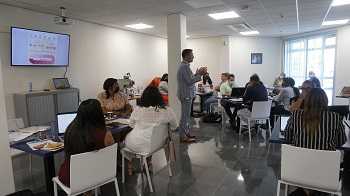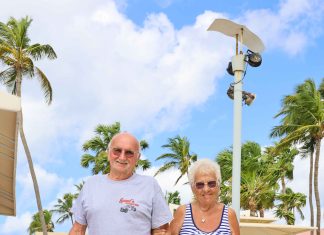Last week, the Prime Minister of Aruba, Evelyn Wever-Croes, together with the Minister of Justice Andin Bikker, had a meeting with the Public Prosecution Service to discuss the Aruba Security House.
Safety House Aruba is a collaboration platform between different entities in Aruba in the field of criminal justice and care that meet every two weeks to deal with individual cases. Last week Thursday was a very important day when they presented their annual report for 2020. The Safety House was established 3 years ago as a platform to address cases of extreme social problems such as individuals at risk, repeat offenders, people with mental health problems who need help, as well as victims and also perpetrators of domestic violence. It is noteworthy to say that many seniors are victims of abuse.
The core partners of the Safety House are:
Compulsory Education, Bureau Sostenemi, KIA, Social Affairs Department, Guardianship Council, Fundacion Guia Mi, Wit Geel Kruis, FMAA, Respaldo, Victim Support Office, KPA, Public Prosecution Service, Probation and Youth Protection Foundation Aruba, Social Psychiatric Service and the FCCA.
Thursday’s meeting was with representatives from these institutions who presented the annual report of everything that has been done in 2020. A year full of challenges caused by the pandemic, but in which 112 individual cases of persons in the above categories were addressed. The purpose of the Safety House in particular is to help and prepare problematic children to be successful as they mature.
It is sad to say that the age of the children with an addiction has already dropped to 11 years. Another problem that arises is primary school students selling drugs at school. Mental health problems are also discussed, as well as the long waiting list in mental health care during the pandemic. They also provide assistance to young people who have fallen ill, especially undocumented migrants.
















